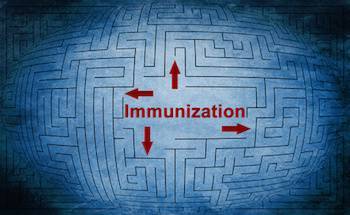
About eleven males are diagnosed with Autism Spectrum Disorder (ASD) for every one female. (Baron-Cohen)
Why?
For several reasons. Diagnosing ASD in females can be harder because they are more motivated to be socially aware and engaged, and these characteristics are inconsistent with the core features of Autism Spectrum Disorder.
Also, the diagnostic instruments used to assess Autism Spectrum Disorder may not be sensitive enough to detect the subtle ways it is expressed in females.
In addition, it seems that excessive control over the environment or other people, and self-centeredness, core features of Autism, are channeled in females into other conditions such as Anorexia, Borderline Personality Disorder and Bipolar Disorder.
Finally, it is likely that Autism Spectrum Disorder is the extreme expression of what it is to be male, such that males need only slight psychological and changes to exhibit Autism Spectrum Disorder while females would require more, thus making it more common in men.
Autism Spectrum Disorder (ASD) and the Empathize-Systemize Dimension
What is it about men, then, that make them more vulnerable to Autism Spectrum Disorder? One intriguing answer is the Extreme Male Brain theory.
This theory proposes that females tend to have a stronger drive to empathize (to identify another person’s thoughts and feelings and to respond appropriately to these), while males have a stronger drive to systemize (to analyze and construct rule-based groups or collection of things).
Some explanation of systemize is needed. Systems follow rules, and someone analyzing or constructing a system is trying to identify the rules that make up the system in order to predict how the system will behave.
There are many kinds of systems, such as mechanical systems (e.g. car engine), natural systems (e.g. farming), social systems (e.g. personnel management), and abstract systems (e.g. mathematics). So, a person focusing on creating and understanding systems is organizing a great deal of their everyday life and the lives around them into an ordered and comprehensive set of facts, principles and rules. Generally, emotions play a little part in this systemizing effort.
Studies have shown that men score higher than women on tests of systemizing while women score higher on tests of empathizing.
In addition, both men and women with ASD score higher on tests of systemizing than typical men and women. Conversely, women with ASD score lower on empathizing tests than typical women.
Autism Spectrum Disorder and Maleness
These results suggest two things. One, Autism Spectrum Disorder is heavily associated with a tendency towards systemizing, a trait that is more common among males. And since people with Autism Spectrum Disorder, both males and females, engage in systemizing even more than typical males, ASD might be considered an extreme expression of maleness.
Second, empathy, a trait associated with femaleness, is less common in people with Autism Spectrum Disorder than it is among typical males and females. This reinforces the extreme maleness explanation of Autism.
It pays to be a bit careful, however, not to accept this explanation uncritically. For one, the evidence is limited. Studies of the empathizing vs. systemizing dimension are very few in number and those that do exist use only one measure of this dimension. Perhaps if other measures were employed the results would be different.
Another criticism is that the idea of extreme maleness has been applied mostly to high-functioning individuals with ASD. Those who are less educated and more disabled might not have the same tendency to systemize and would have less inclination to be empathic.
Clearly, more research and understanding is needed to clarify whether Autism Spectrum Disorder is an exaggeration of essential male characteristics or a condition that occurs more often in males for other, still unknown, reasons. For now, however, the idea of an extreme maleness origin is an intriguing way to understand the core features of Autism.




